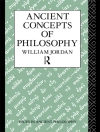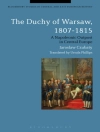Give unique insights into Pelzer’s career with the guitar and the singing class movement from the 1830s through to the 1850s.
The German musician, Ferdinand Pelzer (1801-1864), arrived in England in around 1829 with his wife and daughter and settled in London. He became one of the most important guitarists in the capital in the 1830s at a time when the instrument was enjoying great popularity. In the 1840s his attention turned to choral teaching and he played a role in the singing class movement which was then sweeping the country. In the 1850s he continued to teach the guitar in London.
This edition reproduces the text of three periodicals that trace his career through three decades. They are all bound together into one volume in the hugely important Appleby Collection of Guitar Music. The Giulianiad (1833-c.1835) was the first niche magazine devoted to the guitar that included both text and music sections and it is widely accepted that Pelzer had an editorial role. In the early 1840s he outlined his philosophy and aims for the singing class movement in his Musical Herald and his Guitarist’s Companion of 1857 demonstrated his continued enthusiasm for the guitar.
Зміст
List of Illustrations
Acknowledgements
List of Abbreviations
Note on the Text
Introduction
The Giulianiad
The Musical Herald
The Guitarist’s Companion
Appendices
I. ‘March’ and ‘Waltz’ from ‘Seven Popular Airs’
The Giulianiad, 1:1 (1833), Music 1-4, at 1
II. ‘Solo by Giuliani, (from his 3rd Concerto.)’
The Giulianiad 1:1 (1833), Music 5
III. ‘Fair Evening Star’, Song, Words by E. J. J., Music by Miss Eliz. Mounsey.
The Giulianiad, 1:1 (1833), Music 9-12, at 9
Bibliography
Index
Про автора
SARAH CLARKE’s research interests centre on the guitar in nineteenth-century England. She has a Ph D in music from the Open University. In 2018 she was awarded the Andrew Britton Fellowship by the Cambridge Consortium for Guitar Research and has since been elected a member. She contributed a chapter to ‘The Great Vogue for the Guitar in Western Europe 1800-1840’ ed. by Christopher Page, Paul Sparks, and James Westbrook, 2023.












